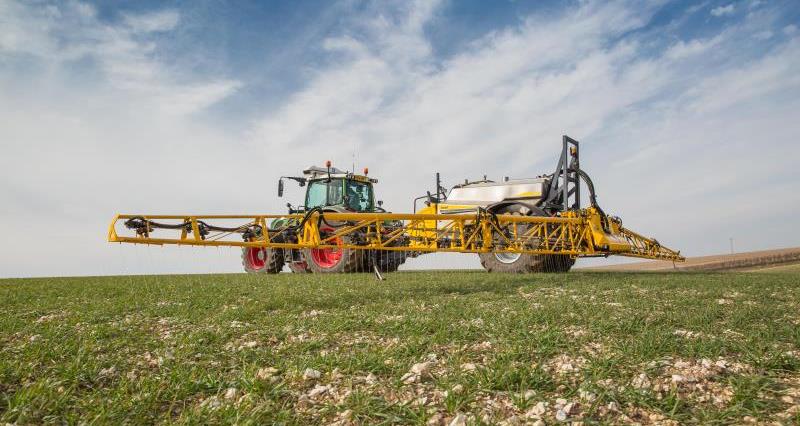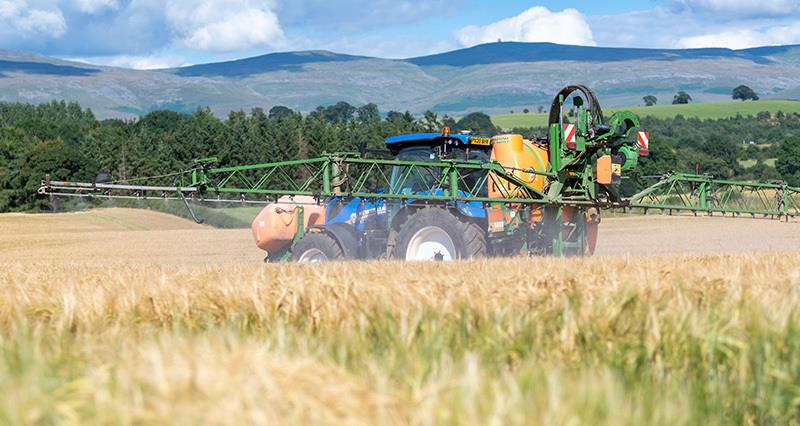In January, ADAS confirmed that a population of glyphosate-resistant Italian ryegrass had been found on a farm in Kent. This is the first time that any glyphosate-resistant species has been confirmed in the UK.
The resistance is thought to have developed in situ, rather than being brought onto the farm through contaminated seed or machinery. The resistant populations have been removed and control measures are in place on the farm to prevent the spread of seed.
Further populations of Italian ryegrass showing reduced control with appropriate glyphosate applications have been found in Essex, Somerset and North Yorkshire.
This recent finding highlights the importance of following best practice measures to minimise the risk of glyphosate resistance.
Below, we outline the WRAG (Weed Resistance Action Group) guidance and what that means on farm. Although focussing on glyphosate, the following advice applies to all herbicides.
Reducing the risk of resistance
Steps to reduce the risk of glyphosate resistance developing are split into four main areas, and focus on avoiding creating ‘high-risk’ scenarios for resistance development.
The four main areas of managing resistance risk are:
1. Use alternative controls
Product withdrawals and a lack of new actives being brought onto the market means that there is a limited selection of herbicides that can be used on farm.
This means that the risk of resistance developing to one or more of the available actives is increased, and it is critical that a range of control measures and actives are considered each season.
There are many cultural control methods suitable for different farming systems that can be used for weed control as part of an IPM (Integrated Pest Management) approach.
Some examples include:
- Creating a stale seed bed prior to sowing. This allows weed seeds to germinate, which can then be destroyed by ploughing in (or spraying off in a no-till system).
- Spring cropping provides two opportunities for weed control, of both autumn and spring-germinating weeds.
- Ploughing during seedbed preparation can bury weed seeds to depths where they cannot germinate, and will decline over time.
- Managing field margins and other non-cropped areas to avoid weed ingress. Where possible, cut weeds before seeds become viable.
- Regularly cleaning harvesting/cultivation equipment, to prevent weed burden spreading between fields.
Find out more about IPM or take a look at the Voluntary Initiative IPM plans.
Where herbicides are the most appropriate method of control, use a range of active ingredients across the season where available.
Relying solely on one active can allow individual plants that may have naturally developed genetic resistance, to survive and multiply. Using multiple active ingredients, either in sequence or in a mix (where recommended) increases the success of removing such weeds.
2. Maximise herbicide efficiency
Always use the right dose of glyphosate for the target weed when applying to actively growing plants.
Check the product label and the growth stages of target weeds for more information on recommended dose rates.
For glyphosate:
- Annual grasses typically require a minimum of 540g a.i./ha for seedlings up to 2-3 leaves, 720g a.i./ha when tillering and 1,080g a.i./ha when flowering.
- Ideally, spray when plants are at least 5cm, but before the start of rapid stem extension and prior to ‘shading’ from other plants.
- Glyphosate is a translocated (systemic) herbicide, meaning that it spreads through the entire plant, killing it from leaf down to root. For this translocation process to work most efficiently, glyphosate should be applied to an actively growing plant.
- Note: the translocation process does not work as efficiently during stem extension. Glyphosate application should avoided during stem extension growth stages, and instead should be held off until the flower head is fully formed.
- Use a water volume between 80-250 l/ha. Lower dose rates and higher water volumes lead to lower glyphosate efficiency.
- Use a medium-coarse spray quality. Flat fan nozzles are most suitable for seedlings.
- Hard water can reduce the efficiency of glyphosate. If applying in a hard water area, add in a water conditioner. Only use adjuvants or water conditioners that are recommended on glyphosate product labels.
- Apply glyphosate in warm conditions (15-25˚C) with at least six hours before rainfall.
Reduced dose rates that still achieve adequate weed control can be used as part of an IPM strategy. However, if a lower dose rate is not enough to achieve adequate weed control, the risk of resistance is increased – plants that have developed a mild tolerance to glyphosate may survive a reduced dose rate, allowing them to multiply and tolerance to increase.
3. Monitor success
Always return a few days after glyphosate application to check the area for surviving weeds.
Remove any surviving plants and consult your agronomist/supplier if you suspect resistance. Samples can be sent for resistance analysis and ADAS will be opening a focussed testing programme in Spring 2025.
4. Prevent survivors
Avoid repeat applications of glyphosate, particularly at the same or lower doses, to surviving weeds.
This can selectively promote the survival of individual plants that have developed genetic resistance.
Instead, manually remove surviving plants if appropriate, or use an alternative herbicide active ingredient. Sufficient cultivation should be considered alongside herbicide use to destroy survivors.
High-risk vs. low-risk situations
Factors that contribute to a high-risk scenario for glyphosate resistance include:
- Continuous monoculture or perennial cropping.
- Little, none or insufficient cultivations.
- High weed levels.
- Glyphosate as the only control method.
- More than two glyphosate applications pre-drilling, with no cultivations.
- Ineffective dose rate for weed size/timing.
Factors that contribute to a lower-risk scenario for glyphosate resistance include:
- Broad rotation, including both winter and spring cropping.
- Sufficient cultivation to kill weeds.
- Low weed levels.
- Combining glyphosate use with alternative herbicide modes of action, and cultural controls.
- Less than two glyphosate applications pre-drilling, accompanied by sufficient cultivation.
- Full/effective dose rates used at correct weed size/timing.
For more information, refer to the WRAG (Weed Resistance Action Group) guidance.


